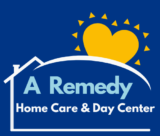A Remedy Home Care can provide services ranging from total care to basic household chores while you are getting back to normal from a hospital visit.

When your family member is in the hospital, just like the hospital staff you are completely focused on their medical treatment. You might not be thinking about what happens when your relative leaves the hospital.
Research has shown that excellent planning and good follow-up can improve patientsʼ health, reduce readmissions, and decrease healthcare costs.
For many seniors, this process may be complicated depending on their circumstances.
Seniors are of special concern during this phase, especially those who suffer medical conditions and are required to take different medications at varying times of the day. Sending someone from a care facility such as a hospital, where around-the-clock monitoring is prevalent, to an environment where little or no interaction occurs requires advance planning to ensure the transition is smooth and safe.
If your loved one has memory problems caused by Alzheimerʼs disease, stroke, or another disorder, discharge planning also becomes more complicated.
Some things to consider include:

- The mobility of the senior
- Medical conditions that may need monitoring
- Administration and monitoring of medicine(s)
- Future appointments with doctors or health providers
- Nutrition and dietary needs
Attention needs to be given to the mobility of the person going home. Challenges in that area should be addressed and solved before less-mobile seniors arrive home. Ensure walkways in the home are clear. Remove trip hazards such as rugs. Rearrange extension cords so they are not a hazard. Handrails in the bathroom can prevent falls.
Seniors recuperating from an illness may need assistance identifying symptoms in the days and weeks after coming home from the hospital. Ask friends and relatives to take turns visiting the senior each day to ensure the senior’s health is on the rise and not declining.
Proper administration of medications is essential for seniors required to take them even for a short period of time. Sometimes, if multiple medicines are needed, seniors may need help remembering time schedules. If personal help is unavailable, make the senior a daily calendar with each hour depicted to help remind them. Med planners/pill dispensers can be used for this purpose, as well, and are the best option for ultimate safety to keep medications organized and aid in preventing accidental overdose.
Often after returning home from a hospital stay, visits to health care providers are scheduled to monitor the progress of those on the mend. Help seniors remember these appointments by penciling them in your own calendar. Call seniors with friendly reminders. Accompanying them to these scheduled visits further ensures these obligations are met and can also help keep you in the loop regarding any new medical care regimens that may be directed.
Seniors returning home from a hospital stay may be on a limited diet. Even if they are not, preparing and eating dinner for themselves may seem overwhelming at first. Help out by grocery shopping or preparing easy-to-heat meals which seniors can make with little or no fuss. Maintaining balanced nutrition is critical for seniors, but can be especially important for those who have had recent health issues.
Following the above tips can help pave the way to a positive transition from hospital to home. Successful transitions help eliminate returns to the hospital which are common when transitions are not well planned.
Studies have shown that as many as 40 percent of patients over 65 had medication errors post hospital, and 18 percent of Medicare patients discharged from a hospital are readmitted within 30 days. This is not good for the patient, not good for the hospital, and not good for the financing agency, whether itʼs Medicare, private insurance, or your own funds. On the other hand, research has shown that excellent planning and good follow-up can improve patientsʼ health, reduce readmissions, and decrease healthcare costs.
If you are unable to assist a senior in need, now might be the time to hire a home care provider, such as A Remedy Home Care. A Remedy Home Care attends to seniors in need on a full or part-time basis performing such duties as cooking, light cleaning, running errands or simply by providing companionship in Spartanburg County. medicare.govStudies have shown that as many as 40 percent of patients over 65 had medication errors after leaving the hospital, and 18 percent of Medicare patients discharged from a hospital are readmitted within 30 days. This is not good for the patient, not good for the hospital, and not good for the financing agency, whether itʼs Medicare, private insurance, or your own funds. On the other hand, research has shown that excellent planning and good follow-up can improve patientsʼ health, reduce readmissions, and decrease healthcare costs. If you are unable to assist a senior in need, now might be the time to hire a home care provider, such as A Remedy Home Care. A Remedy Home Care attends to seniors in need on a full or part-time basis performing such duties as cooking, light cleaning, running errands or simply by providing companionship in Spartanburg County.

